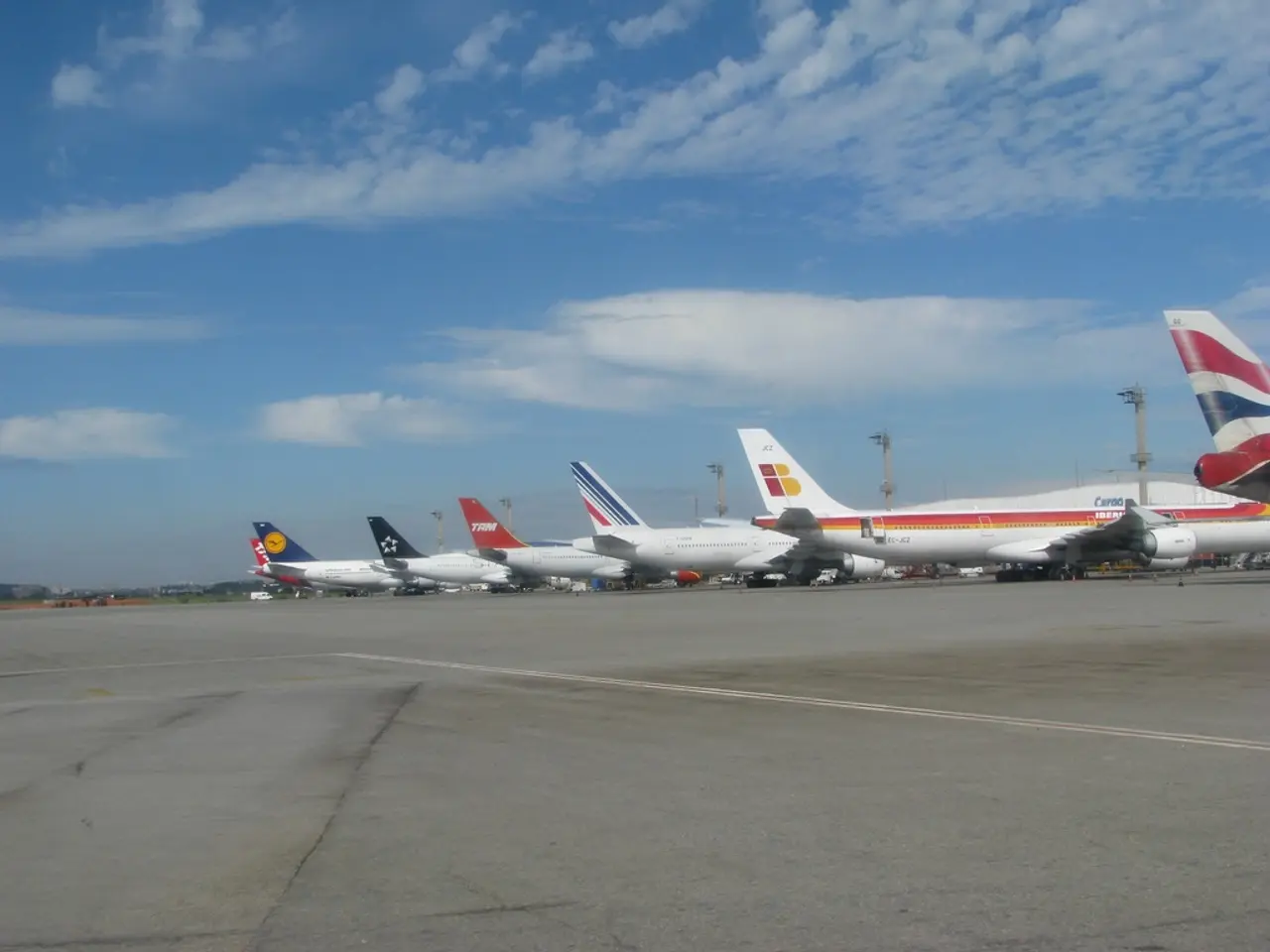Increase in airfare for flights departing from Germany
In recent times, the cost of airline tickets in Germany has been on the rise, with the average price of an Easyjet ticket increasing from €84 to €86. This trend is not unique to Easyjet, as many airlines in the country have seen a similar surge in ticket prices.
One of the main reasons for this increase is the high government taxes and fees imposed on air passengers. These taxes, often with environmental or fiscal motives, are passed on to customers, resulting in higher flight costs for travellers.
Another significant contributor to the rising ticket prices is the cost associated with airports. Major German airports charge airlines various fees for the use of facilities and services, which add to the airlines’ operating costs and are, in turn, reflected in ticket prices.
The limited supply of flights and capacity management also play a role in the price hike. The continuing shortage of flights, meaning fewer available seats compared to demand, pushes prices upward. Airlines like Lufthansa and its Eurowings subsidiary operate more expensive offerings partly due to capacity constraints and pricing strategies affected by demand fluctuations.
Advanced booking advantages also impact ticket pricing. Booking tickets well ahead (e.g., three months before) offers lower prices, while last-minute bookings tend to be more expensive, indicating that tight seat availability influences pricing dynamics.
The air traffic levels have not fully rebounded post-pandemic, limiting the number of flights and intensifying fare pressures. Airlines respond to fluctuating passenger numbers with elastic capacity planning, but the gap between demand and supply sustains price increases.
Not all airlines have raised their prices, however. Wizz Air is the only airline to have lowered its average price, from €94 to €67. Ryanair, the airline with the most passengers in Europe last year, has reduced services at German airports such as Hamburg and Berlin, but the average fare for a one-way ticket without luggage from Ryanair is now €80, up from €66 a year ago.
Eurowings, a Lufthansa subsidiary, is now charging an average of €130 for a one-way flight, up from €110 last year. Despite this, Ryanair's airline boss, Eddie Wilson, has suggested that Ryanair could double its fleet in Germany from 30 to 60 aircraft, but demands the new federal government to abolish the air traffic tax and reduce various fees to make operations more viable.
In light of these rising prices, using tools like Google flights, Skyscanner, or the Twistr app can help find the cheapest possible route. It is crucial for travellers to plan ahead and book early to secure the best deals.
Sources: [1] ADAC Analysis, German Airports Among Most Expensive in Europe [2] German Aerospace Centre (DLR) Report, Three out of Four Major Airlines in Germany Increased Prices in 2023 [3] Ryanair Statement, Ryanair Considering Expansion in Germany [4] Wilson Interview, Ryanair Boss Wilson Wants to Double German Fleet but Demands Tax Cuts [5] Lufthansa Press Release, Eurowings Price Increase for 2023
- Despite the rising ticket prices in Germany's airline industry, some travelers can still find cheaper routes by using tools like Google Flights, Skyscanner, or the Twistr app, emphasizing the importance of early booking and careful planning.
- Ryanair's airline boss, Eddie Wilson, indicated that Ryanair could potentially double its fleet in Germany, but he stressed the need for the new federal government to abolish the air traffic tax and reduce various fees to make operations more viable, suggesting a possible relationship between such measures and competitive pricing in the industry.








